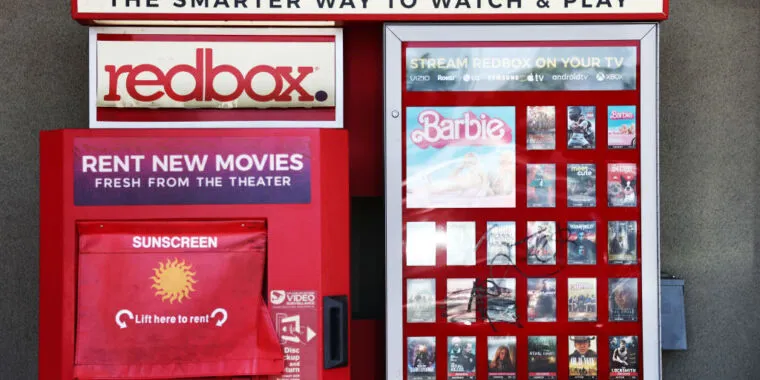- cross-posted to:
- technology
- [email protected]
- [email protected]
- cross-posted to:
- technology
- [email protected]
- [email protected]
It’s sensible for businesses to shift from physical media sales. Per CNBC’s calculations, DVD sales fell over 86 percent between 2008 and 2019. Research from the Motion Picture Association in 2021 found that physical media represented 8 percent of the home/mobile entertainment market in the US, falling behind digital (80 percent) and theatrical (12 percent).
But as physical media gets less lucrative and the shuttering of businesses makes optical discs harder to find, the streaming services that largely replaced them are getting aggravating and unreliable. And with the streaming industry becoming more competitive and profit-hungry than ever, you never know if the movie/show that most attracted you to a streaming service will still be available when you finally get a chance to sit down and watch. Even paid-for online libraries that were marketed as available “forever” have been ripped away from customers.
When someone buys or rents a DVD, they know exactly what content they’re paying for and for how long they’ll have it (assuming they take care of the physical media). They can also watch the content if the Internet goes out and be certain that they’re getting uncompressed 4K resolution. DVD viewers are also less likely to be bombarded with ads whenever they pause and can get around an ad-riddled smart TV home screen (nothing’s perfect; some DVDs have unskippable commercials).



No DRM digital files downloads is the simple answer. There is no reason to go back to physical media to avoid subscriptions.
Keep in mind that DVDs did have DRM and the corps did try and get at the people who broke it. A new and improved physical media would have DRM and it’s possible the corporations will prevent it being defeated this time.
Which means that yoy would only be able to play it on approved hardware. You can have your shiny disc but they will decide if you can play it. Perhaps they can detect how many people are present via a camera or require you do drink that verification can.
cough cough 4K bluray cough cough
Thankfully, MakeMKV is able to get through that with certain drives for every disk I’ve tried.
Ripping those disks is legitimately easier than playing them w/o breaking DRM on PCs
Legitimately playing 4K blu-ray video on a PC without cracking the DRM requires an insane combination of requirements:
Meanwhile MakeMKV can rip them on basically any Windows/Linux/Mac system with a compatible BDXL drive.
For real, VLC is great, I’ve totally had issues playing some of them with it. If I recall there’s supposed to be a way to let vlc use MakeMKV to break them for playback, but yeah, way more work than just ripping it.
In MakeMKV preferences, Integration tab, VLC should be listed there
https://www.makemkv.com/libmmbd/
No, RDM is not the answer. If i pay for something i should own it.
Glad that you agree.
Yup, here’s my hierarchy of preference:
Anything after 4 is unacceptable. VHS was 2, DVD and Bluray are 3, and Netflix was 4. Now Netflix has higher prices and worse selection, so it’s now somewhere after 4 and not worth the effort.
I’m willing to pay a premium for 1 or 2, and I’m willing to buy discounted 3, but nothing is offering 4 anymore. 1 & 2 don’t really exist anymore, so if 3 goes away, I guess I’ll go back to the alternatives I used when I couldn’t afford 1-3 and Netflix wasn’t around yet.
VHS did have a halfassed copy protection technology attempted, though, which was Macrovision. It didn’t really work worth a damn in the end, but even in that area the media giants were already huffing on the DRM crack pipe.
Dropout.TV would definitely fall under #4 if you haven’t checked them out
VHS was kind of 2.5 thanks to macrovision…
Removed by mod
If there’s momentum for a return to physical media the copyright owners won’t start printing DVDs or BluRays for new or republished media.
They will push a new format with new media and players. They will use all they have learned from their previous failures to put more effective technical and legal hurdles to the users.
Perhaps we will break it again but it is not a given. If we don’t they will decide how youn can use your media.